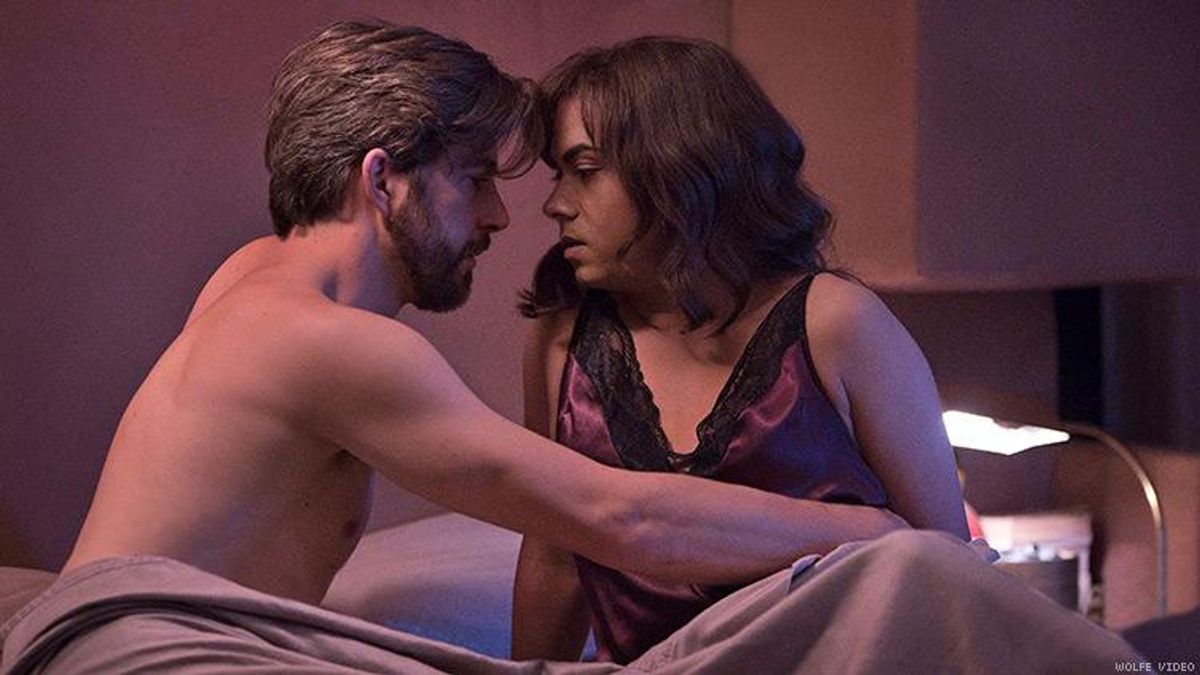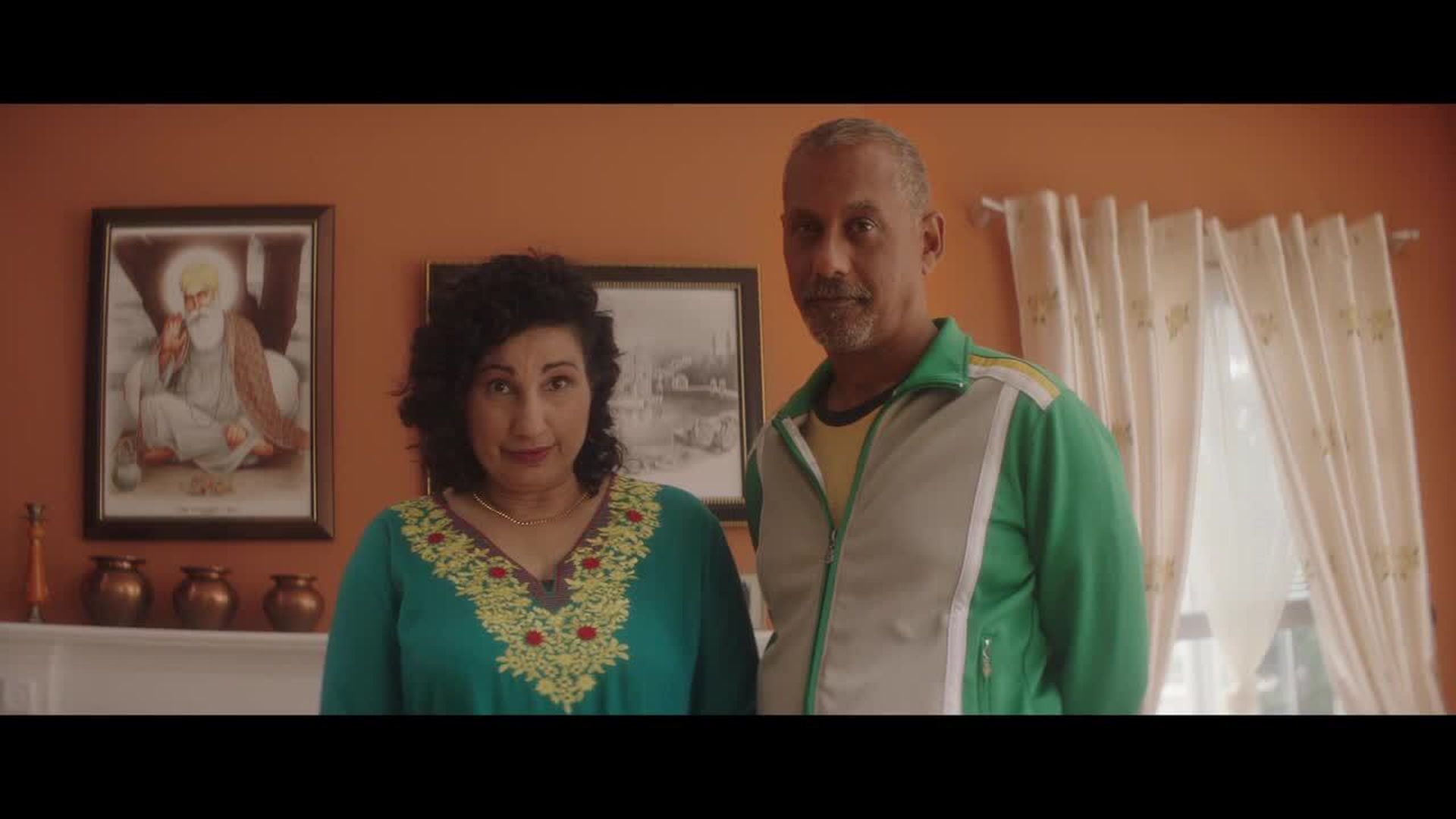Voices
Are Trans Stories the Most Fascinating Tales to Tell?

Filmmaker Eisha Marjara's new movie honors her mother by telling a story of incredible women, including a radical trans protagonist.
September 05 2018 5:04 AM EST
May 31 2023 8:15 PM EST
By continuing to use our site, you agree to our Private Policy and Terms of Use.

Filmmaker Eisha Marjara's new movie honors her mother by telling a story of incredible women, including a radical trans protagonist.
I lost my mother to a terrorist bombing when I was a teen. When I was trying to figure out what it means to be a woman. When I was battling anorexia in the hospital. I lost her. I was 65 pounds and motherless, overnight. The woman, a mom who stands as the ultimate role model, image, human being, for a daughter, of what it means to be "woman." She was gone. And I was left with big load of gender trouble ahead of me.
Welcome to your future, girl.
My mom was not Madonna, nor Cher. Nor Cindy Crawford. She was a 4-foot, 9-inch Punjabi immigrant housewife. Plump, gregarious. Emotional. Loving. Terrifying, with her healthy arsenal of Punjabi swear words. And completely forgettable. Who would remember her? Did her life matter? Did her voice matter? I drifted in a gender twilight zone for some years and steered through the world of film telling stories about what this "woman thing" meant, with The Incredible Shrinking Woman, then my feature docudrama Desperately Seeking Helen and my YA novel Faerie. Fast-forward to 2008 and trans stories, and voices start coming out. Individuals, outsiders, who challenge and break down traditional paradigms and beliefs about gender by just being who they are. For me, making a movie with a transgender woman was a no-brainer.
"I am out of this world. How else can I explain how strange I feel in my body and in my skin? My body is a costume I cannot take off. I must have landed here from -- Venus."
That is how Venus opens -- with the voice of Sid Gill expressing that she feels like an outsider on Earth and in her own skin. That idea set in motion what is now the family comedy Venus. I knew early on that the best way to make people "learn" is to make them not realize they are learning. You announce that a film is an LGBTQ story, and people who are not LGBTQ will ignore it. You tell them it's "about" an immigrant family, and non-immigrants will turn away. There is this idea that a movie will preach and lecture and check all the politically correct boxes while telling a predictable story. So the dilemma for me was, How do you tell a story about something without telling the story about something? How do you make it completely new? How do you tell a story about an outsider and not put the spotlight on their outsiderness?
You tell the story from the inside out. By reaching underneath, inside the belly of feeling, and living there. You bring the audience inside their universe, and you make them laugh, you make them cry, you make them think, you make them a part of the movie.
Sid, the South Asian trans lead, is you. She is me. She is a daughter, she is a professional, she is a girlfriend, she is a child of immigrants, she is a city girl, she is a die-hard Cher fan. And as we discover in Venus, she is the parent of a 14-year-old son she didn't know she had, and her world is about to spin out of control -- and in a good way. I thought it was important to reflect Sid as a multidimensional human being going through life challenges just like anyone else, including her coming-out. I did not want her transness and her transition to be the focus of the film. I felt like that's her business.
Mainstream representation of trans people has been voyeuristic, reductive, with the focus on cosmetic and medical transformation, and I wanted to move away from anything close to such a representation. In turn, the trans community has appreciated the portrayal as refreshing, authentic, and humanistic, which was very important for me. Venus received several awards from the Transgender Film Festival in Germany, and this was reaffirming.
The film was originally very dramatic, but when Joe Balass, the producer, encouraged me to develop Sid's Indian parents, the film got funny pretty damn fast. These lovely, colorful, wise, and kooky parents just wrote themselves. Sid's Punjabi mom was particularly clear and opinionated about who she was and what she had to say, and I as the writer and director had very little choice in the matter. Ma Ji's love is tough, but it is pure. Family is gold to her. Zena Darawalla, who plays Sid's mother, was the spitting image of the storyboard mom I had sketched long before Zena auditioned. It was magical. Joe felt strongly about casting Gordon Warnecke to play Sid's tracksuit-wearing fitness nerd dad. Gordon starred opposite Daniel Day-Lewis in the iconic 1985 queer classic My Beautiful Laundrette, about an interracial gay love affair between a young Pakistani Briton and his white punk boyfriend in working-class London. It was a seminal film for Joe, who was coming out as a young Iraqi gay man at the time. Casting Gordon as Sid's father, we felt, would be a symbolic gesture, a passing of the torch from one generation to the next, from one groundbreaking film to hopefully another with Venus, about a truly modern-day blended family. Venus will live on well into the 21stcentury as a TV series that we are currently developing.
Watch an exclusive clip of Venus below in which Sid tells her parents she has a son.

Venus is now available on demand. FollowVenus on Facebook.
EISHA MARJARA is a Canadian film director and writer.